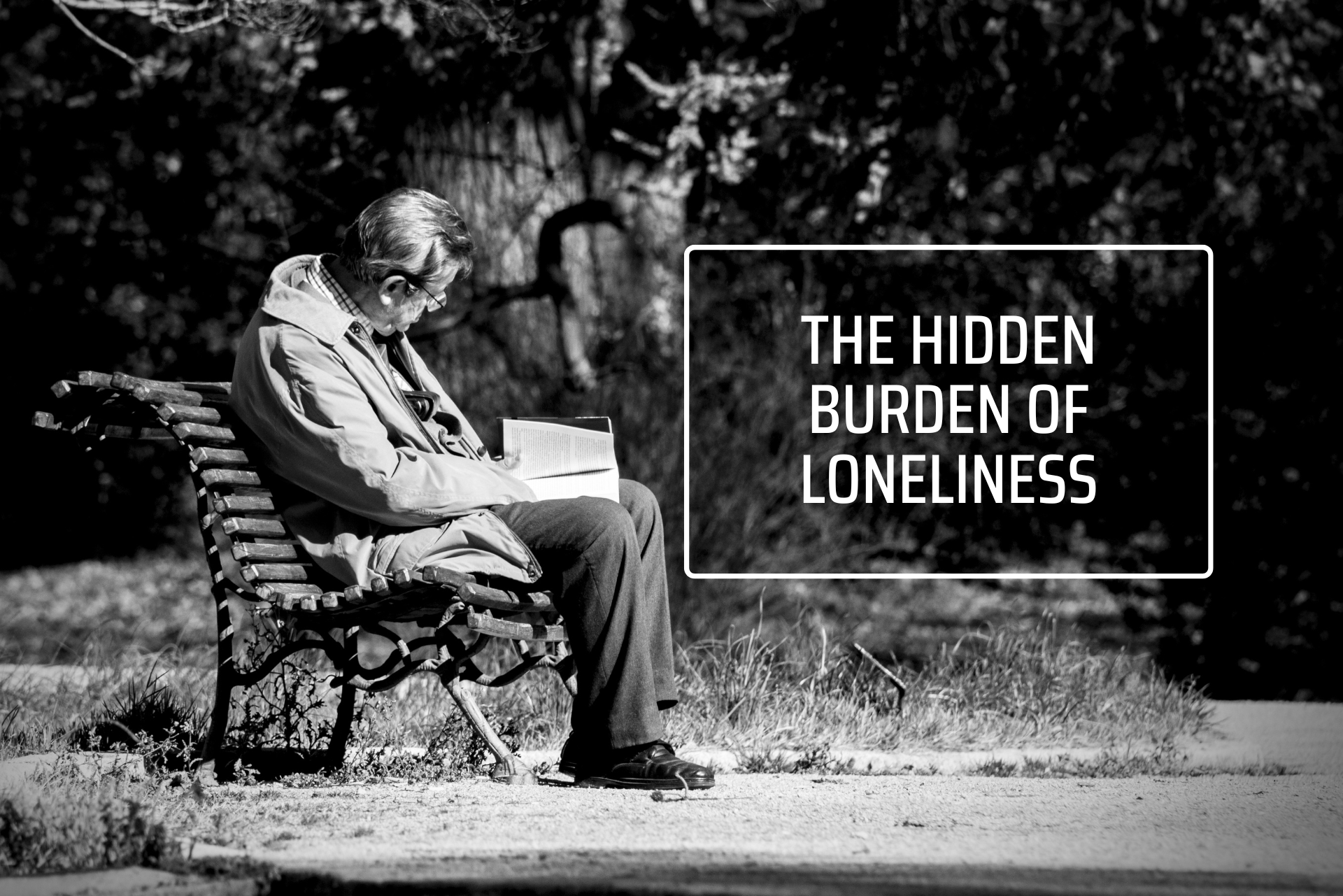
The Hidden Burden of Loneliness: A Psychosocial Lens on Chronic Disease and Healing
Loneliness has emerged as a public health crisis with a significant impact on both mental and physical health. The implications are especially critical for individuals living with chronic illnesses, including chronic kidney disease (CKD), where the psychosocial dimension of care often goes underrecognized.
Loneliness is not simply a social inconvenience. It is a biological stressor that activates the same neural pathways as physical pain. Prolonged isolation can trigger chronic inflammation, alter gene expression, dysregulate immune functioning, and increase the risk of premature mortality. When loneliness intersects with a chronic illness like CKD, it can create a feedback loop in which social disconnection exacerbates disease progression, and the burden of illness further isolates the individual.
Recent research underscores this intersection of loneliness, mental health, and physical vulnerability. Such findings illuminate how vital relational environments are for health and recovery.
This biopsychosocial interplay is particularly important in nephrology, where patients with CKD often face long-term dialysis, dietary restrictions, and functional decline—all of which can significantly impact their social lives. Social withdrawal due to fatigue or stigma may lead to further loneliness, reinforcing patterns of low mood, cognitive burden, and helplessness. These psychosocial stressors are not separate from disease—they are embedded in its progression.
The chronic illness experience, especially in advanced stages, can also disrupt identity and create existential distress. Patients may grieve their former roles, independence, and bodily reliability. In these moments, relationships serve not only as sources of comfort but as stabilizers of meaning and selfhood. When absent, the sense of isolation can compound suffering, making recovery more difficult. Connecting with others is a powerful tool in minimizing the impact of this trauma.
Nurses play a crucial role in mitigating loneliness in individuals with CKD. As frontline caregivers, they are uniquely positioned to observe early signs of isolation, provide emotional support, and facilitate connections between patients and the broader healthcare team. Through compassionate presence, active listening, and patient advocacy, nurses can foster therapeutic relationships that offer reassurance and continuity. They also help implement psychosocial interventions, educate patients on coping strategies, and support family involvement in care. In community and clinical settings alike, nursing interventions that prioritize relational care can buffer against loneliness and improve overall patient outcomes.
During dialysis treatment, nurses have an especially vital role in addressing loneliness. Given the regular and extended nature of dialysis sessions, nurses often form ongoing relationships with patients, providing continuity and emotional stability. These moments offer critical opportunities for observation, therapeutic conversation, and psychosocial support. Nurses can encourage peer interactions among patients, engage in meaningful dialogue that alleviates emotional burdens, and refer individuals to appropriate mental health or social services. They are often the first to notice changes in a patient’s mood, affect, or social engagement, making them key caregivers in early detection and intervention. In many cases, their presence alone—consistent, caring, and attentive—becomes a significant antidote to the emotional isolation that CKD can bring.
The transformative role of empathy in dialysis nursing is supported by a growing body of research. Patients on hemodialysis consistently identify empathy, trust, and respect as core components of high-quality nursing care. These therapeutic relationships offer emotional safety, foster hope, and provide vital psychosocial stability. Meanwhile, studies have shown that nurses who exhibit cognitive empathy—understanding a patient’s emotional and mental state—are better equipped to deliver effective, patient-centered care.
However, maintaining empathy can be challenging. Nurses working in dialysis settings often contend with time pressures and technical demands that risk eroding empathic engagement. Demands for populating electronic medical records queries during the dialysis procedure, focus on dialysis machine alarms, and the “pull” of internet engagement provide powerful distractions. It requires a conscious effort to connect with patients when there is no problem or query to be addressed. Despite this, research has shown that nurses who cultivate empathy tend to experience higher job satisfaction and lower burnout. Empathic nursing is thus of dual benefit—supporting both the patient and the well-being of the nurse.
Organizational support is crucial in sustaining empathetic care. Training in communication skills, creating spaces for reflective practice, and ensuring manageable workloads help preserve nurses’ capacity to offer meaningful psychosocial support. Relational competencies, such as active listening, shared decision-making, and emotional attunement, are not just “soft skills”—they are clinical tools that improve adherence, resilience, and healing.
Yet loneliness is not simply about the number of social contacts. It is deeply connected to the quality of relationships—to feeling seen, heard, and valued. Clinical conversations that create space for emotional expression, patient narratives, and relational reflection are as important as pharmacological treatment plans. Here, psychodynamic, existential, and relational models of care have much to offer, particularly when integrated into multidisciplinary teams.
In conclusion, loneliness is a significant problem. It is a biological, psychological, and social hazard that demands a scientifically informed and compassionate response. As recent research demonstrates, loneliness alters the trajectory of mental and physical health. For individuals living with chronic disease, it adds invisible weight to an already heavy burden. A shift toward relationship-centered care—grounded in empathy, connection, and clinical rigor—offers a pathway not only to symptom management but to deeper healing.
Selected References
- Hawkley, L. C., & Cacioppo, J. T. (2010). Loneliness matters: A theoretical and empirical review of consequences and mechanisms.Annals of Behavioral Medicine, 40(2), 218–227.
- Holt-Lunstad, J., Smith, T. B., Baker, M., et al. (2015). Loneliness and social isolation as risk factors for mortality: A meta-analytic review.Perspectives on Psychological Science, 10(2), 227–237.
- Valtorta, N. K., et al. (2016). Loneliness and social isolation as risk factors for coronary heart disease and stroke: Systematic review and meta-analysis.Heart, 102(13), 1009–1016.
- Cacioppo, J. T., & Cacioppo, S. (2018). The growing problem of loneliness.The Lancet, 391(10119), 426.
- Seeman, T. E., et al. (2001). Social relationships, stress, and markers of aging.Journal of Health and Social Behavior, 42(4), 441–455.
- Mushtaq, R., et al. (2014). Relationship between loneliness, psychiatric disorders, and physical health? A review.Journal of Clinical and Diagnostic Research, 8(9), WE01–WE04.
- Cornwell, E. Y., & Waite, L. J. (2009). Social disconnectedness, perceived isolation, and health among older adults.Journal of Health and Social Behavior, 50(1), 31–48.
- Hreńczuk, M., et al. (2021). The therapeutic nurse–patient relationship in hemodialysis therapy: patient perceptions of caring attitudes and behaviors.Nursing Forum, 56(2), 248-256.
- Wittenberg, L., et al. (2017). Empathy in nursing practice: A mixed-methods study of hemodialysis care.Journal of Clinical Nursing, 26(9-10), 1377–1386.
- Wu, X., et al. (2024). Relational care competencies and patient-reported outcomes in nephrology nursing: A scoping review.BMC Nursing, 23(1), 41.
About the Author
Dr Gavril Hercz
Dr. Gavril Hercz is a nephrologist at Humber River Health and Associate Professor of Medicine, University of Toronto. He completed his psychoanalytic training at the Toronto Psychoanalytic Institute and is a member of the Canadian Psychoanalytic Society. His major area of interest is the impact of physical illness on patients, families, and caregivers.
Loneliness is not simply a social inconvenience. It is a biological stressor that activates the same neural pathways as physical pain.



